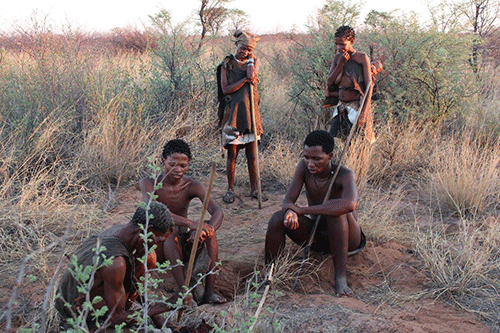Popular Democratic Movement president McHenry Venaani is disturbed by the entrenched social, educational and economic disparities that marginalised communities in Namibia face.
This is why the veteran politician will soon introduce a private member’s bill to regulate the recognition, promotion and protection of the rights and interests of marginalised communities in Namibia.
Venaani made these remarks in the National Assembly last week while giving notice to introduce the draft legislation early next month.
“The objective of this bill is to fundamentally address and rectify the deeply entrenched social, educational and economic disparities that marginalised communities in Namibia face. Rooted in a commitment to human dignity and equality, this legislation aims not merely to recognise the existence of these communities but to uplift them through actionable programmes and reforms,” Venaani said.
Venaani, furthermore, said the draft law seeks to dismantle the systemic barriers that keep the troubled communities on the periphery, away from mainstream opportunities and institutional benefits.
The leader of the official opposition added this is not merely an act of social justice but a vital necessity for the holistic development of the nation.
No money
Earlier this year in the National Assembly, deputy minister of marginalised people, Royal /Ui/o/oo, revealed that Namibia’s marginalised communities were in need of N$157 million to alleviate hunger and malnutrition.
He added the ministry has been struggling to meet its yearly feeding programme, education and the roll-over of conditional basic income grant due to limited funding.
He shared statistics also that the economic status of the marginalised groups or indigenous minorities in Namibia, namely the San, Ovatue and Ovatjimba, is still below the national average, with 77% unemployed and 68% living in poverty, respectively.
This is supposed to be the first step to phase in a conditional basic income grant, which is only to be paid to the existing food bank and marginalised grant beneficiaries.
He further noted this makes it difficult to make his ministry care for the people in need.
Finance minister Iipumbu Shiimi allocated N$6.5 billion for the 2023/24 financial year to the gender ministry, under which the marginalised communities fall, representing an increase from N$5.5 billion the previous financial year.
Land reform
Meanwhile, for lands minister Calle Schlettwein, land reform and resettlement remain some of the most challenging policy issues for the government.
His ministry, in particular, is grappling with this hot potato.
“It has been and still is a centre piece of our policy framework, aimed at bringing about equality and equity in socio-economic opportunities for disadvantaged Namibians. This is so because of the multiplicity of aspects – all interrelated with each other.
“They include the need to restore dignity, a decent livelihood, the ability to live out cultural and traditional aspects of life in communal areas, and to address injustices committed by colonisers of the past and resultant landlessness,” Schlettwein said recently.
He further said all those issues are primarily linked to the demand for land.
Addressing the huge demand for land, Schlettwein said, must remain a priority but dealt with in a phased approach.


